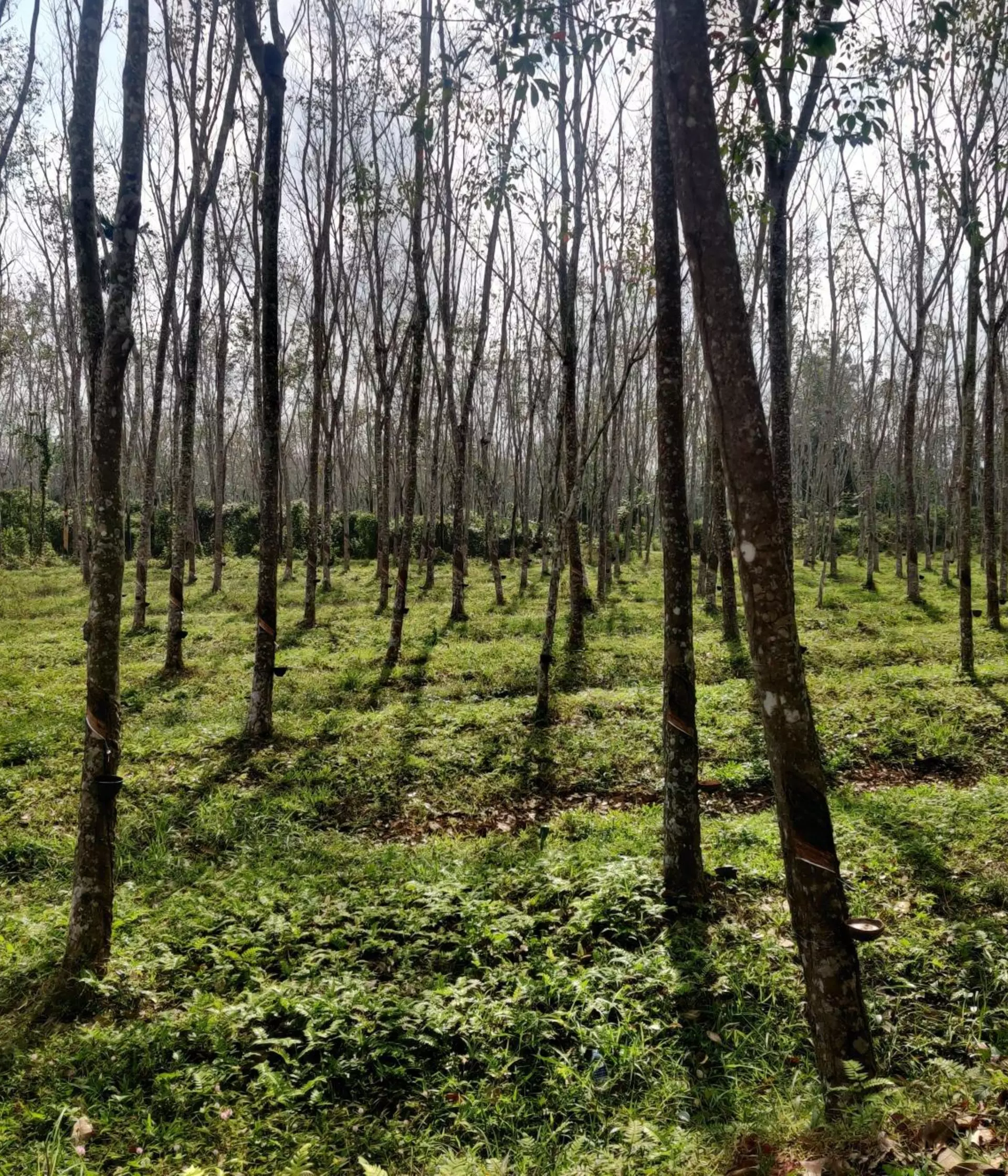The majority of the world’s largest natural rubber companies have published comprehensive sustainability policies, reveals our latest assessment of the sector – while also highlighting a serious lack of reporting on implementation, traceability and smallholder engagement.
Our SPOTT platform reveals the results of its fifth annual natural rubber assessment, indicating a notable advancement in scores relating to their environmental, social and governance (ESG) policies. Over 71.4% of companies now publish comprehensive sustainability policies across their supply chains—a significant improvement from 39% in 2019. This progression of publishing these policies suggests the sector is building a foundation for policy implementation, yet the journey remains extensive, with time running short as our climate and biodiversity crises reach critical thresholds.
Sam Ginger, ZSL’s Sustainable Business Specialist who led on the report said: “The global demand for natural rubber, predominantly used to manufacture tyres, drives tropical deforestation - this not only devastates biodiversity but also fuels global warming, ultimately making it more difficult to grow rubber trees. It’s encouraging to see the sector publishing sustainability policies in recognition of its impact on natural ecosystems - the next step is to ensure commitments are being acted upon.”
Despite the improvements in policy disclosures, their implementation remains critically low, with negligible progress in companies which report engaging with their suppliers on sustainability—only inching from 21% in 2019 to 27.7% in 2024. Additionally, while 71.4% of assessed companies now have zero-deforestation policies covering their whole supply chains, only 17.9% publish any information on how they monitor deforestation in supplier plantations. However, it’s expected that the EU Regulation on Deforestation-free Products, which requires all rubber imports to be traceable to plot of origin by 2025, will provide the much-needed push for companies to systematically map their supply chains and give buyers a direct line to engage suppliers on ESG issues such as workers’ rights and environmental protections.
The SPOTT results also highlight an increase in companies’ reporting on crucial sustainability information, including roles responsible for sustainability, collaborations tackling sustainability issues, and the publication of sustainability reports. However, most companies are yet to report detailed climate risk assessments for their operations and supply chains, with a 46.7% reporting rate in 2024 - up from 13% in 2019. This is particularly concerning given how, without intervention, predicted droughts and intensified rainy seasons could decimate rubber cultivation.
This report marks five years of SPOTTs annual assessments of the world’s leading natural rubber companies on their ESG-related public disclosures and reporting and comes as the platform marks a significant milestone of ten years advancing public disclosure within soft commodity supply chains.
ZSL's engagement with the sector has led to several notable improvements in public disclosure. An impressive 78% of companies assessed on SPOTT for natural rubber have engaged with ZSL, resulting in significant score improvements through a process which identifies both gaps in reporting and opportunities to disclose new information. Companies that participated in the consultation period averaged a 59.5% score in 2024, compared to 25.3% for those with no contact with the SPOTT team.
In 2024, SPOTT-assessed company Sri Trang increased its score by 14 percentage points (pp) via direct engagement with ZSL; broadening its sustainability policies to include commitments for responsible chemical usage, to support smallholders and trace rubber supply, as well as reporting up to date figures on the amount of land they manage for rubber production and wildlife conservation. The company has seen one of the biggest overall increases on the platform, from 14.2% in 2022 to 53.1% in 2024, showcasing the value of dialogue and transparency. Other companies that showed marked improvements through engagement with the SPOTT team include Michelin, ITOCHU and SIPH, increasing by 31 pp, 20 pp and 13 pp respectively during engagement in the past three years.
Meanwhile, Groupe Blattner Elwyn, Guangdong Guangken Rubber Group Co Ltd (广东省广垦橡胶集团有限公司), HAGL Group, J.A. WATTIE Tbk, Kumho Tire, Toyo Tyre Corporation, Zhongce Rubber Group Co Ltd (中策橡胶集团有限公司) have yet to engage with the SPOTT team and are encouraged to do so as part of their movement towards sustainability.
While advancements in policy and reporting with the sector are commendable, the emphasis now must shift from establishing policies to the actual execution of commitments on the ground. In addition to only 17.9% of companies publishing evidence of monitoring deforestation, almost all companies score poorly on issues such as water use reduction, protective equipment and training, progress towards paying a living wage, and publicly disclosing grievances made against them.
Sam added: “In the next five years, we need to see a surge in action to build traceable and equitable rubber supply chains that restore nature and biodiversity. Otherwise, the foundations on which the sector relies - a stable climate, people to extract and process the rubber and healthy soils - will continue to deteriorate.”
